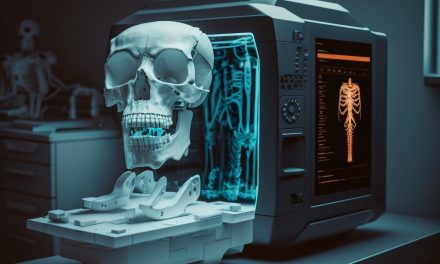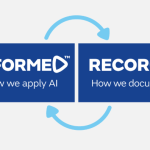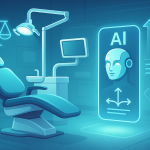The Challenge of Protecting Dental Data in Era of Artificial Intelligence
Artificial Intelligence (AI) will transform dental practices providing dental practitioners with smart tools that they can use to deliver improved patient outcomes and increase the availability of high-quality dental care for people across all economic segments of society. One obstacle to increased adoption of AI in dentistry is the range of ethical issues that have yet to be solved. AI is a nascent technology which is not understood fully, even by its proponents and developers, even if this is not always admitted. In addition, people effectively work in silos as they are in competition with one another to provide solutions, meaning learning is not systematically shared.
Dentists have a professional responsibility to ensure they are using AI in an ethical and responsible manner, and to stay up to date with the risks as well as the benefits of AI in dentistry. This article examines the ethical considerations involved with data privacy that dental practitioners should be aware of in the use of AI in dentistry.
Applying Australian data protection laws to AI
The use of AI in dentistry often involves the collection, storage, and processing of sensitive personal data, such as medical records, diagnostic images, and treatment plans. It is important to ensure that this data is protected and kept confidential in accordance with relevant laws and regulations.
In Australia, dentists are subject to a number of laws that deal with data protection and privacy, including the Privacy Act 1988, the Health Records Act 2001 plus various industry-specific privacy codes and guidelines.
The Privacy Act 1988 is the main federal law that applies to the collection, use, and disclosure of personal information in the private sector, including in the healthcare industry. It sets out a number of principles that organisations must follow when handling personal information, including the requirement that they only collect, use, or disclose this information for a lawful purpose, and that they take reasonable steps to ensure that it is accurate, up-to-date, and relevant.
The Health Records Act 2001 is a federal law that specifically applies to the collection, use, and disclosure of personal health information in Australia. It applies to both the public and private sectors, and sets out a number of rules that organisations must follow when handling this type of information.
In addition to these laws, there are also a number of industry-specific privacy codes and guidelines that apply to the healthcare industry, including the National Privacy Principles (NPPs) and the Australian Privacy Principles (APPs), which set out more detailed guidance on how organisations should handle personal information.
Dentists in Australia are required to comply with all of these laws and guidelines when handling personal information, including data protection and privacy laws. They must also ensure that they have appropriate safeguards in place to protect this information from unauthorised access, use or disclosure.
How dental data is used in AI systems
The lifeblood of AI systems is sizable, accurate datasets to train on. The size of the datasets used to train AI systems in dentistry can vary significantly depending on the specific application and the type of data being used. Some AI systems may be trained on relatively small datasets, while others may require much larger datasets in order to achieve good performance.
For example, an AI system designed to classify dental images into different categories (e.g., healthy vs. unhealthy teeth) might be trained on a dataset of several thousand images. On the other hand, an AI system designed to predict the likelihood of a patient developing a particular dental condition based on a range of factors (e.g., medical history, demographic data and dental images) might require a dataset with tens of thousands or even hundreds of thousands of data points in order to accurately make predictions.
In general, the larger and more diverse the dataset used to train an AI system, the more accurate and reliable it is likely to be. However, it is critical to ensure that the data used to train AI systems is of high quality, is representative of the diversity of humanity and is free from biases or errors. Dental professionals must be aware of the data protection issues that affect any data they supply from their practices to third parties and also to be aware of the data protection issues involved in the AI systems they utilise in their practices. Data collection points include client dental records, dental imaging from x-rays and 3D scans, wearable devices, sensors embedded in toothbrushes and mouthguards, and online data collection.
Active steps dentists can take to protect client data
In an AI world, dentists have a responsibility to protect the data of their clients. There are several steps that dentists can take to ensure that client data is secure:
1. Use secure servers and storage systems: Dentists should use servers and storage systems that are secure and encrypted to store client data to minimise data breaches by hackers or other bad actors.
2. Implement strong passwords: Dentists should use strong passwords for all accounts and devices that handle client data.
3. Train employees: Dentists should train their employees on how to handle client data securely. This includes educating them on the importance of using strong passwords, avoiding sharing passwords, and not accessing client data unless it is necessary for their job.
4. Use two-factor authentication: Dentists should use two-factor authentication whenever possible to add an extra layer of security to client data.
5. Regularly update software: Dentists should make sure that all software is regularly updated to ensure that it is secure and free of vulnerabilities.
6. Active consent: Patients should be fully informed about how their data may be used for AI system training, and they should be given the opportunity to opt out. This prevents unauthorised use and usage without their knowledge or consent.
By taking these steps, dentists can protect the data of their clients and ensure that it is not accessed by unauthorised parties.
AI will deliver a revolution in dental care via providing dental practitioners with dramatically improved diagnostics, predictive tools and treatment planning and more, with improved patient outcomes and increased affordability as primary benefits. This article has outlined the ethical issues that are currently an obstacle to faster development and adoption of these benefits.
Michelle Mason
m.r.mason04@gmail.com
Sources:
K. H. Keskinbora, (2020). Medical ethics considerations on artificial intelligence, Journal of Clinical Neuroscience
Favaretto M, Shaw D, De Clercq E, Joda T, Elger BS., (2020). Big Data and Digitalization in Dentistry: A Systematic Review of the Ethical Issues. International Journal of Environmental Research and Public Health. 17(7):2495.
C.M. Mörch, S. Atsu, W. Cai, X. Li, et al., (2021-12-01). Artificial Intelligence and Ethics in Dentistry: A Scoping Review, Journal of Dental Research, SAGE Publications












